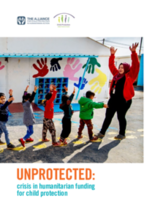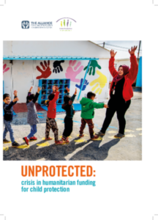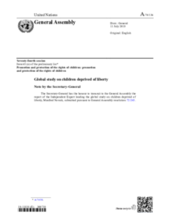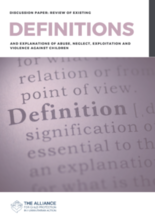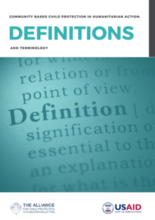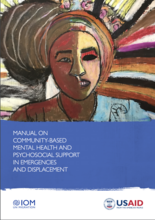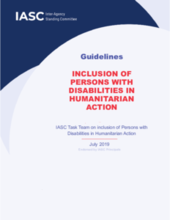Displaying 1841 - 1850 of 4424
This desk review provides a picture of funding for the child protection sector over the period 2010–2018. The authors highlight funding trends, main donors and recipients, and examine funding levels in comparison to financial requirements in a selection of countries in 2018.
This desk review provides a picture of funding for the child protection sector over the period 2010–2018.
The present report summarizes the detailed findings of the global study on children deprived of liberty, the first scientific attempt, on the basis of global data, to comprehend the magnitude of the situation of children deprived of liberty, its possible justifications and root causes, as well as conditions of detention and their harmful impact on the health and development of children.
In this chapter of the Handbook of Emotional Development, the authors discuss animal models that support developmental theories underscoring the importance of the caregiver–infant relationship for emotional development, explore how varying degrees of neglect may be differentially associated with subsequent emotional outcome, and review empirical work in this area from a developmental perspective by addressing how early neglect may impact the development of biological and behavioral mechanisms that underlie emotional functioning across multiple developmental periods.
There is no uniform definition of supervisory neglect and this creates challenges for measurement and identifying caregivers at risk. In this article definitional and measurement issues are discussed, as well as challenges in conceptualizing prevention.
This report examines the main elements of child abuse, neglect, exploitation and violence (nature of the act; perpetrator relationship to the child; motivation or intent; and outcomes) in ways that recognise the overlap and highlight the distinctions between each type of maltreatment.
This list of common Community Based Child Protection (CBCP) - related terms and their definitions - is intended to show the evolving definitions around CBCP. These definitions were collected through a systematic review of over 234 documents (both published and grey literature).
The present Manual aims to facilitate mental health and psychosocial support (MHPSS) experts and managers in designing, implementing and evaluating community-based MHPSS (CB MHPSS) programmes, projects and activities for emergency-affected and displaced populations in humanitarian settings.
GHR Foundation will launch its $1 Million BridgeBuilder Challenge on 2 July 2019.
The guidelines set out essential actions that humanitarian actors must take in order to effectively identify and respond to the needs and rights of persons with disabilities who are most at risk of being left behind in humanitarian settings.

